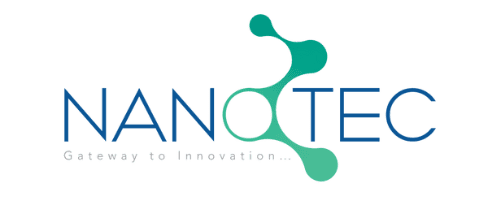The Future of Nanotechnology: How It’s Revolutionizing Industries

Nanotechnology is no longer just a futuristic concept — it’s here, and it’s transforming industries across the globe. From medicine to manufacturing, nanotechnology is unlocking new possibilities and improving processes in ways we never thought possible. In this blog post, we’ll explore how nanotechnology is revolutionizing industries and why it’s a game-changer for the future.
What is Nanotechnology?
Nanotechnology involves the manipulation of matter on an atomic or molecular scale. This technology allows for the creation of materials and devices that have unique properties not found in their bulk counterparts. The tiny scale of nanomaterials (often measured in nanometers) makes them incredibly powerful, providing enhanced strength, conductivity, and other characteristics that are revolutionizing various fields.
1. Nanotechnology in Medicine: A New Era of Treatment
One of the most exciting applications of nanotechnology is in the field of medicine. Nanomaterials can be used for drug delivery, allowing for more targeted treatments with fewer side effects. By delivering drugs directly to the affected area, nanotechnology can increase the efficiency of treatments for diseases such as cancer, Alzheimer’s, and diabetes.
Nanotechnology is also playing a key role in diagnostics. Nanosensors can detect diseases at earlier stages, even before symptoms appear, giving doctors a better chance to treat patients effectively. The potential for personalized medicine is also on the rise, with nanotechnology helping tailor treatments to an individual’s unique genetic makeup.
2. Nanotechnology in Electronics: Smarter, Faster, and More Efficient Devices
The electronics industry is also experiencing a revolution thanks to nanotechnology. Nanomaterials are being used to create smaller, faster, and more efficient components for electronic devices. For example, transistors made from carbon nanotubes offer higher performance than traditional silicon, enabling the development of ultra-fast computers and smartphones.
In addition to enhancing existing technologies, nanotechnology is opening the door to entirely new devices. Flexible and lightweight electronics, such as wearables and smart fabrics, are becoming possible thanks to advances in nanotechnology.
3. Nanotechnology in Energy: Cleaner, More Efficient Power Sources
As the world continues to search for sustainable energy solutions, nanotechnology is playing a crucial role in developing cleaner and more efficient power sources. Nanomaterials are being used to improve solar panels, making them more affordable and efficient by increasing their energy conversion rates. Nanotechnology is also enhancing the performance of batteries, leading to longer-lasting, more reliable energy storage solutions.
In addition, nanotechnology is helping reduce the environmental impact of energy production. For example, nanomaterials can be used in catalysts to make energy production processes more efficient, reducing emissions and making power generation greener.
4. Nanotechnology in Manufacturing: Boosting Efficiency and Reducing Costs
In the manufacturing industry, nanotechnology is improving the quality and efficiency of products. Nanomaterials can make products stronger, lighter, and more durable, which is particularly important in industries like aerospace, automotive, and construction. For example, carbon nanotubes are being used in materials to create stronger yet lighter vehicles and aircraft, improving fuel efficiency and performance.
Nanotechnology is also helping manufacturers reduce costs. By improving the durability of materials, products last longer and require fewer replacements. Additionally, nanotechnology can improve production efficiency, reducing waste and energy consumption during the manufacturing process.
5. Nanotechnology in Environmental Protection: A Solution for Pollution
Nanotechnology offers innovative solutions for environmental issues, including pollution control and water purification. Nanomaterials can be used to filter out toxins and heavy metals from water, providing access to clean drinking water in areas where resources are limited.
In addition, nanotechnology can help clean up oil spills and other environmental contaminants. Nanomaterials can break down harmful substances more quickly and efficiently than traditional methods, minimizing the environmental impact.
The Future of Nanotechnology: Endless Possibilities
The future of nanotechnology is incredibly promising. As research continues, we can expect even more groundbreaking advancements across multiple industries. From creating smarter cities to improving healthcare, nanotechnology holds the key to solving some of the world’s most pressing challenges.
At Nanotec, we are committed to providing the best nanotechnological products and services to support research and industrial innovation. As the industry continues to evolve, we remain at the forefront of this exciting technology, ensuring that we deliver the highest-quality solutions to our clients.
Conclusion
Nanotechnology is no longer a far-off dream — it’s a reality that’s changing the world. Whether in medicine, energy, or manufacturing, nanotechnology is making significant strides, offering new possibilities and efficiencies that were once unimaginable. The future is bright, and we can’t wait to see how this incredible technology will continue to shape our industries in the years to come.
Interested in exploring nanotechnology solutions for your business?
Contact Nanotec today to learn more about how we can help you harness the power of nanotechnology for your needs.


